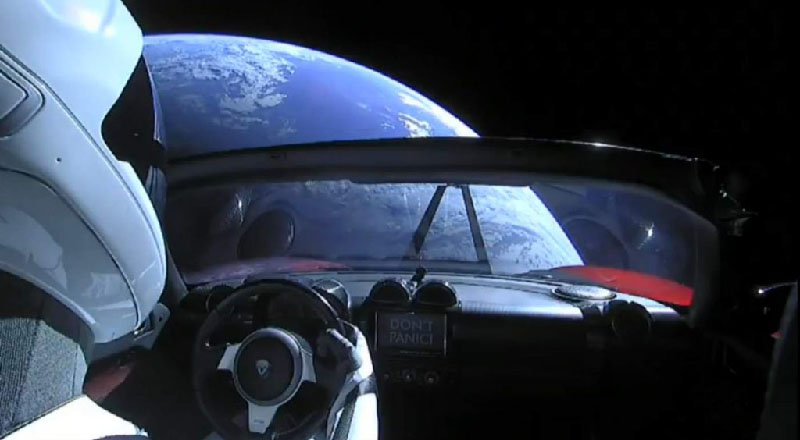

On 6 February 2018, a Tesla Roadster was launched as the mass simulator on the first ever Falcon Heavy launch — putting for the first time ever a car on a Mars-crossing orbit. While undoubtedly a bit of a stunt, the onboard cameras provided an amazing view of our planet Earth as the Starman dummy in the Roadster slowly drifted away from that blue marble, presumably never to be seen again.
This “never” is the point that researchers at the University of Toronto would like to clarify in a paper published after the launch titled The Random Walk of Cars and Their Collision Probabilities with Planets. Using N-body simulations, they come to the conclusion that there’s a 22%, 12%, and 12% chance of the Roadster impacting the Earth, Venus, and the Sun, respectively. But don’t get too excited, it’s not due to happen for a few million years, so it isn’t something any of us will be around to see.
As the Where Is Starman? website shows, the Roadster never reached escape velocity from the Sun’s gravity, meaning that it’s still zipping around in an orbit around our day star. Exposed to the harsh UV and other radiation, it’s likely that very little is left at this point of the Tesla, or Starman himself. Even so, scientists to this day are feeling less than amused by what they see as essentially littering, adding to the discarded rocket stages, dead satellites and other debris that occasionally makes it into the news when it smashes into the Moon, or threatens the ISS.

